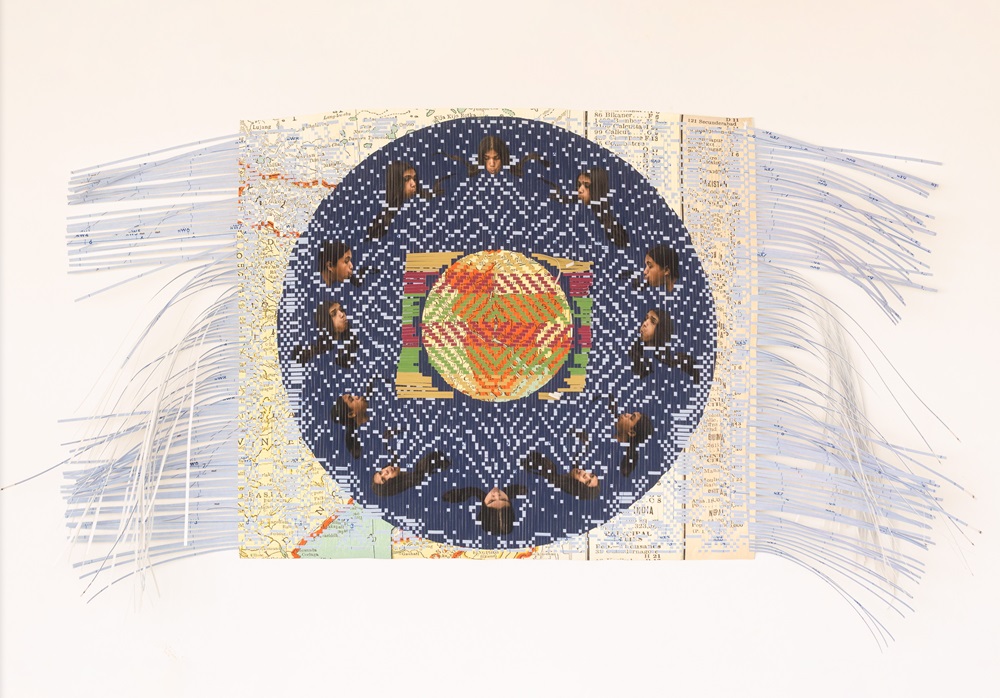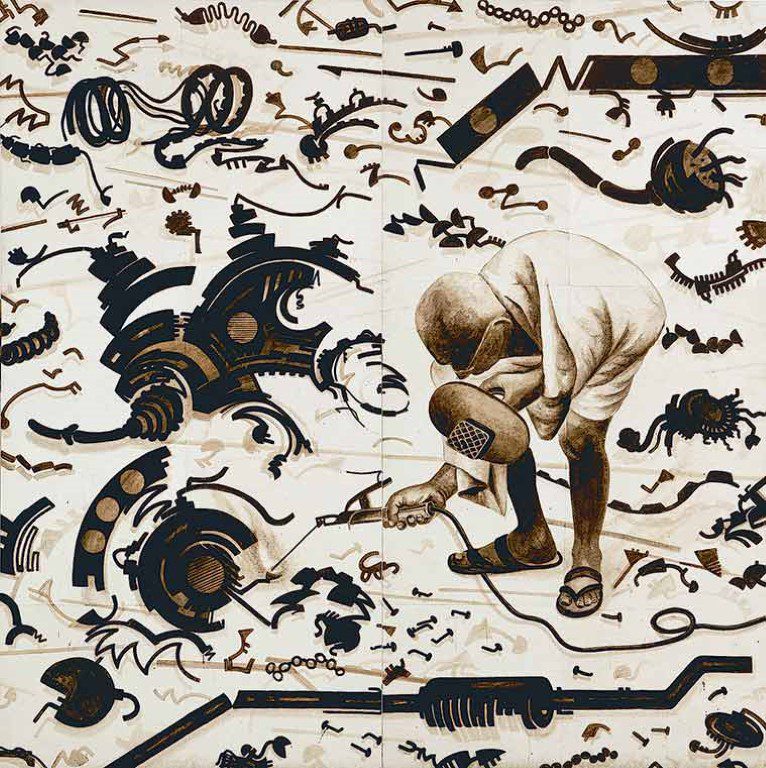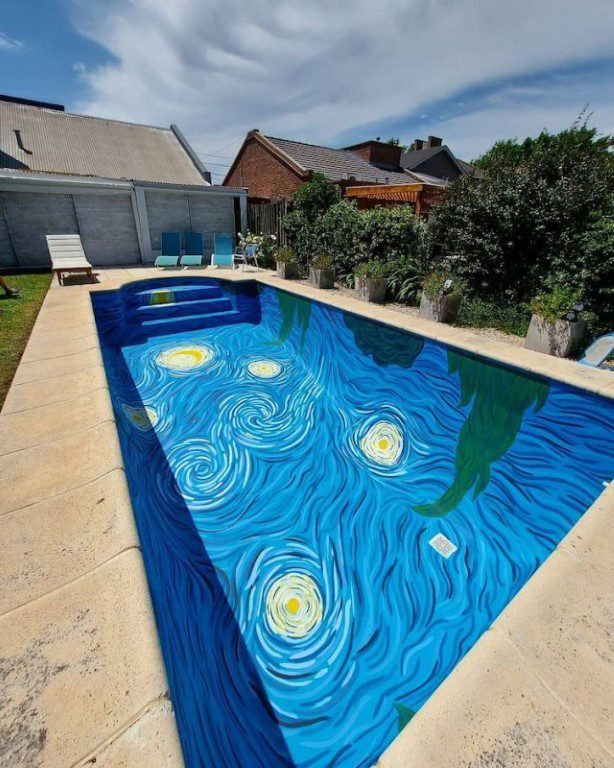Emami Art is participating in the upcoming Art Düsseldorf 2024. Emami Art will be showcased at the next edition of the Art Fair slated from 12th to 14th April 2024 at Booth No E05. In ‘Torment, Transit, Transition’, the Emami Booth will exhibit the works of three artists, Arpita Akhanda, Ghana Shyam Latua and Soma Das.
Lamentations on landscapes, memories of migration, and recollections of displaced domesticity are obtrusive themes of artmaking and thinking in post-colonial India. The re-occurrence of such tropes, born out of immense emotional insurgency, is politically reactionary and profoundly affects the artist and their worldviews. This project combines works by three contemporary artists at diverse junctures of art practice, all based in West Bengal, India.
Ghana Shyam Latua (b.1992) lays out the transitioning arid Rarh region of Bengal fragmented by corruption and terrorised by real estate strategies. Arpita Akhanda (b.1992) collects ancestral memories of partition and migration and reconnects these aquatic reminiscences to every waterway she transits. Soma Das (b. 1979) embodies motifs from traditional miniature paintings into transited semi-urban, domestic spaces in Kolkata. Torment, Transit, and Transition unites the works of these artists as they attempt to preserve the memory of rancorous pain, degradation or even redundancy by reconstructing them in the contemporary frame of reference.
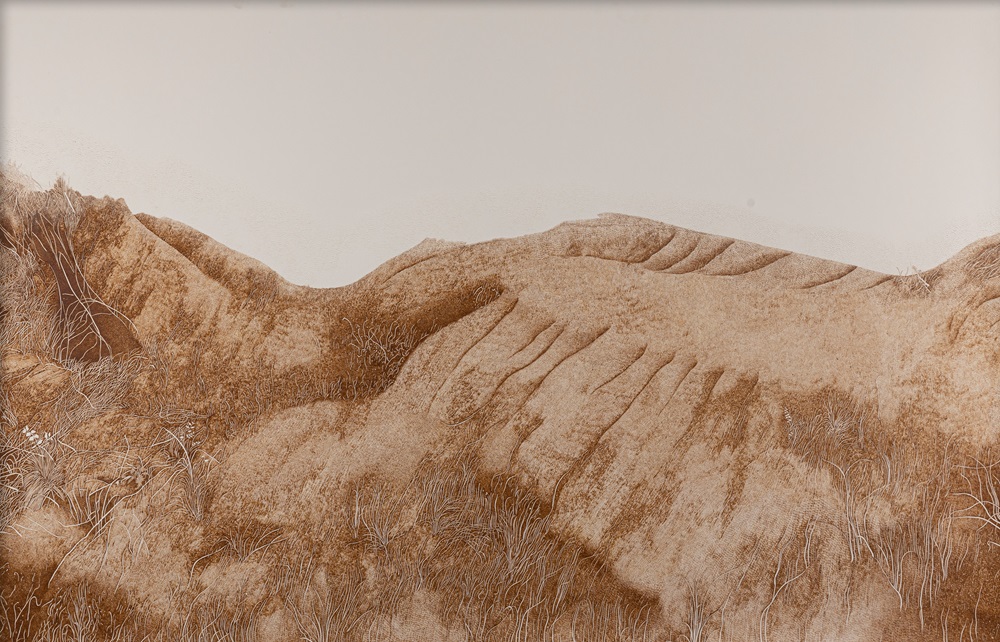
Carrying the inter-generational memory history of transit, Akhanda’s body, as a post-memorial site, conserves the inherited trauma of the act of covertly crossing the river in search of a home. Beyond cartographic boundaries, questioning political decision-makers that shape the destiny of the migrants, Akhanda’s finely sliced and hand-woven photographs equate the recreation of the wounds of displacement. (Art Dusseldorf 2022 featured Akhanda’s paper weavings, among which the work titled – I am not a Refugee II was acquired by the K21 Kunstsammlung Nordrhein Westfalen Düsseldorf as a part of their permanent collection.)
Latua dissects the expanse of once an uninhabited, eroded, and arid laterite stretch into inept plots. An invisible melancholy expands into global capitalism as the now-scanty landmasses engulfed by hollow spaces interrogate the visuality of the picturesque. His unusual pinprick technique wounds the empty bio-space and perforates the silence apart to take a flight towards a quiet rebellion.
Das finds her pictorial language through a unique combination of tranquil yet detailed motifs referencing miniature paintings. Her detailed studies reflect her empathetic camaraderie for the every day and reveal the concealed history of the migrant workers. Das’ empathetic vision finds spaces of transit to pronounce these silent moments of contemplation, the repetitive mundane and tacit exhaustion.
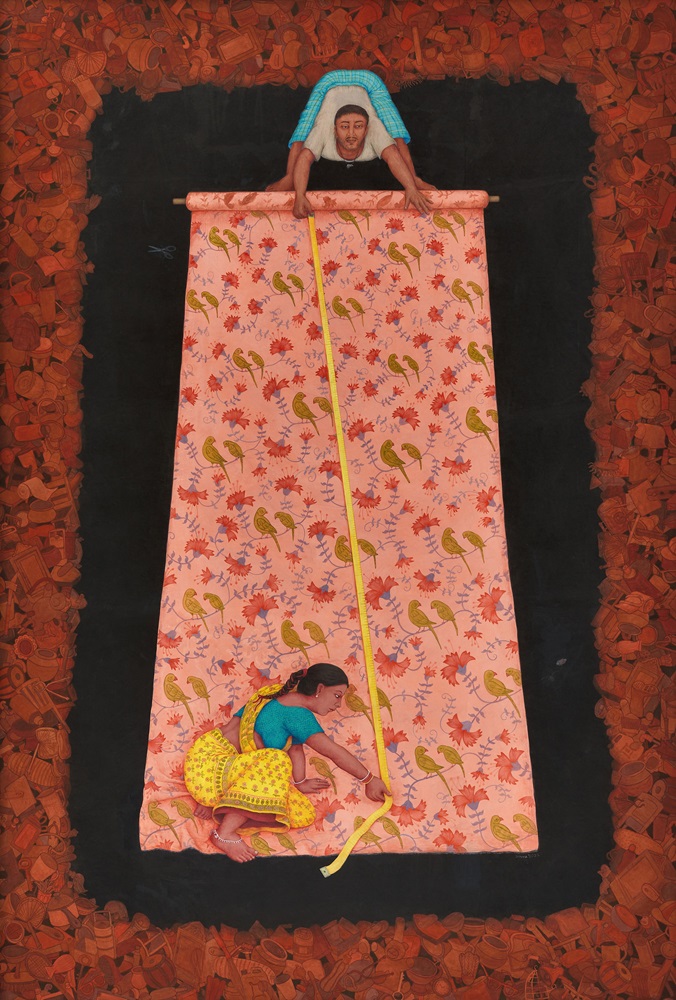
Each of these artists draws from the history-memory-politics where bodies and communities have gone through displacement, detachment, and denudation. Akhanda, by relating family history through memoirs, dates, and cartographic information; Latua, by provoking the notion of an evolving site maintained to destroy its natural order and protagonist the displaced ordinary; Das explores the idea of transitioning home in multiple contexts.
The modus operandi of Latua, Akhanda, and Das may be varied, but each attempt to disrupt by altering the image plane to mark the transition from an earlier concept of romantic geography to political geography. This transitory space underscores the oeuvre of all three artists, who present an intra-generational, contemporised and contextual reading of South Asia through their works.
Feature image: Wind heads by Arpita Akhanda/ credit: Emamai Art
Artist Vivek Vadkar Blends Realistic Art and Design for Seamless Harmony in Living Spaces

